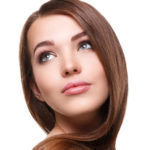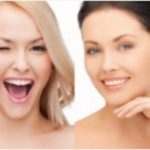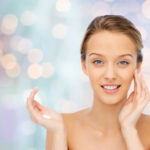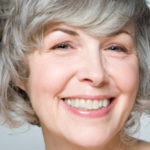Free Consultation in Central London
No obligation appointment with a surgeon
SKIN 101
What Ages Skin?
Free Consultation in Central London
No obligation appointment
Click below to contact us
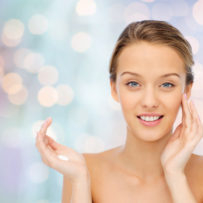
Ageing Starts Young
Our skin is continuously ageing but the visible signs of this change start appearing in our twenties and thirties. Whilst in these decades, it is important to preserve youthful skin, maintaining it for as long as possible. After signs of ageing appears this is still pertinent, but there is the added focus of slowing down and even reversing these signs. The ageing skin follows two processes - intrinsic and extrinsic ageing. We will go through each and talk about what areas we can affect and how we go about doing so.
Intrinsic Skin Ageing
A significant part of intrinsic ageing is directed according to our genetic predisposition. One of our natural bodily functions - oxidative metabolism - contributes and is a constantly occurring process. Skin cells also age in themselves. These factors mean that the whole skin is gradually ageing in an unstoppable, unchangeable way.
Extrinsic Skin Ageing
Despite us not being able to do anything with our intrinsic ageing, there is hope in the form of extrinsic ageing. These are driven by external or environmental factors. The most important of these is UV exposure from sunlight, which has been extensively noted in scientific literature. UV causes ageing skin and the changes are characterised by greater number of wrinkles, pigmentation change, coarse texture, thinning of skin, increased laxity, small skin vessel abnormalities (telangiectasia) and lentigines. Excessive UV exposure, especially repeated episodes of sunburning in early life, also predisposes to skin cancer.
Nicotine (from smoking and e-cigarettes) is another highly influential factor that has been shown to accelerate ageing. In addition, smoking is widely known to significantly delay wound healing, increase infection and form poorer scars after surgery. There is evidence to suggest that air pollution, specifically the particulate matter that make up the pollution, speeds up the ageing process and contribute to various skin conditions. Due to the nature of the extrinsic factors, it is the exposed areas of skin that suffer the most ageing signs.
Oxidative Stress
All of the factors mentioned above induces reactive oxygen species (ROS; also known as free radicals). These are formed naturally as part of normal human oxidative metabolism in our cells' mitochondria. ROS are also created by alcohol and states of inflammation. 'Oxidative stress' contributing to ageing was first described by Harman in 1956 and is one of the most accepted theories to explain ageing. ROS damage vital cell constituents - DNA components, cell membrane elements and proteins.
Another negative effect is recent data showing that ROS induce an enzyme (collagenase) that breaks down skin collagen. This would age, thin and reduce elasticity in the skin. The body, as part of its defense mechanism against ROS, have anti-oxidants help to manage this oxidative stress. Unfortunately, anti-oxidant production decreases as we age and this imbalance worsens when we need it most in later life. These anti-oxidants are also less effective in the most needed group - sun bathers - as UV can inhibit their effect.
What can we do to target signs of ageing?
The Sun
The avoidance of excessive UV exposure and use of sunscreen is perhaps the easiest and most essential advice for protection against photoaging and skin cancer. A good sunscreen should not only provide broad-spectrum ultraviolet A/B protection but should also be formulated so that they are easy to apply, water resistant, and non-irritant in order to maximise user compliance.
Moisturising
Skin hydration with a moisturiser is very important for the overall appearance of your skin. Dryness can cause the skin to appear dull, unevenly toned, flaky, and rough. Moisturisers typically contain an occlusive component (to reduce water loss) , water attracting humectants, and emollients (which act as a filler to make the skin appear smoother). Although creams can temporarily reduce signs of ageing when used regularly, they do not structurally change the skin. They primarily act to plump up the superficial layers of skin with more hydration.
Retinoids
The usage of topical retinoids have been described to reduce wrinkles and improve skin texture. Retinoids is the biologically active form of vitamin A and acts to reduce collagen breakdown and to promote collagen production. However, these are prescription only and should only be available under a dermatologist. This will be in the private setting as the National Health Service does not fund this for anti-ageing purposes.
Anti-oxidants
Anti-oxidants are frequently added to anti-ageing skin creams. Sometimes they are present in low concentrations to prevent degradation of other ingredients within a skin product. In higher concentrations, there is some preliminary evidence that they help to appreciably improve photo-aged skin. However, there needs to be more robust scientific evidence to back up any widespread advice to use such anti-oxidants in creams regularly.
Vitamins
Vitamins are frequently seen on skincare products. Although there are some promising studies done for vitamins B and E, it is vitamin C that has the most clinical evidence. It has been shown to increase the skin's support via increase in collagen and elastic fibres when used topically over skin.
Our appointments are never rushed and you are under no obligation to have a treatment after your FREE consultation. Contact us for a booking!
These articles are released monthly - be sure to follow us on Twitter, Facebook and Instagram to get these free updates!
References
Nkengne A, Bertin C. Aging and facial changes--documenting clinical signs, part 1: clinical changes of the aging face. Skinmed. 2012 Sep-Oct;10(5):284-9.
Flament F, Bazin R, Laquieze S, Rubert V, Simonpietri E, Piot B. Effect of the sun on visible clinical signs of aging in Caucasian skin. Clin Cosmet Investig Dermatol. 2013 Sep 27;6:221-32.
Yaar M, Gilchrest BA. Photoageing: mechanism, prevention and therapy. Br J Dermatol. 2007 Nov;157(5):874-87.
Lavker RM, Gerberick GF, Veres D, Irwin CJ, Kaidbey KH. Cumulative effects from repeated exposures to suberythemal doses of UVB and UVA in human skin. J Am Acad Dermatol. 1995 Jan;32(1):53-62.
Misery L. Nicotine effects on skin: are they positive or negative? Exp Dermatol. 2004 Nov;13(11):665-70.
Kim KE, Cho D, Park HJ. Air pollution and skin diseases: Adverse effects of airborne particulate matter on various skin diseases. Life Sci. 2016 May 1;152:126-34.
Harman D. Aging: a theory based on free radical and radiation chemistry. J Gerontol. 1956 Jul;11(3):298-300.
Cohen LE, Grant RT. Sun Protection: Current Management Strategies Addressing UV Exposure. Clin Plast Surg. 2016 Jul;43(3):605-10.
Huang CK, Miller TA. The truth about over-the-counter topical anti-aging products: a comprehensive review. Aesthet Surg J. 2007 Jul-Aug;27(4):402-12
Nusgens BV, Humbert P, Rougier A, Colige AC, Haftek M, Lambert CA, Richard A, Creidi P, Lapière CM. Topically applied vitamin C enhances the mRNA level of collagens I and III, their processing enzymes and tissue inhibitor of matrix metalloproteinase 1 in the human dermis. J Invest Dermatol. 2001 Jun;116(6):853-9.
Kang S, Voorhees JJ. Photoaging therapy with topical tretinoin: an evidence-based analysis. J Am Acad Dermatol. 1998 Aug;39(2 Pt 3):S55-61.
Popular Topics
How to optimise your skin consistently using robust medical evidence, rooted in science.
Avoid fads and be wise to extravagant marketing.
The Needle & Knife
With so many options for facial rejuvenation, how do surgeons choose the right procedure for our patients?
What Ages Skin?
We look at the main influences that have been shown to significantly affect the way and rate our skin ages.
1. Cleansing
Understand your cleansers and what works well for different skin types
2. Moisturising
Understand your moisturisers and what is most appropriate for your skin
3. Sun Protection
Understand why sun protection is one of the most important aspects of skincare
4. Anti-Aging
Scientifically proven anti-aging products




